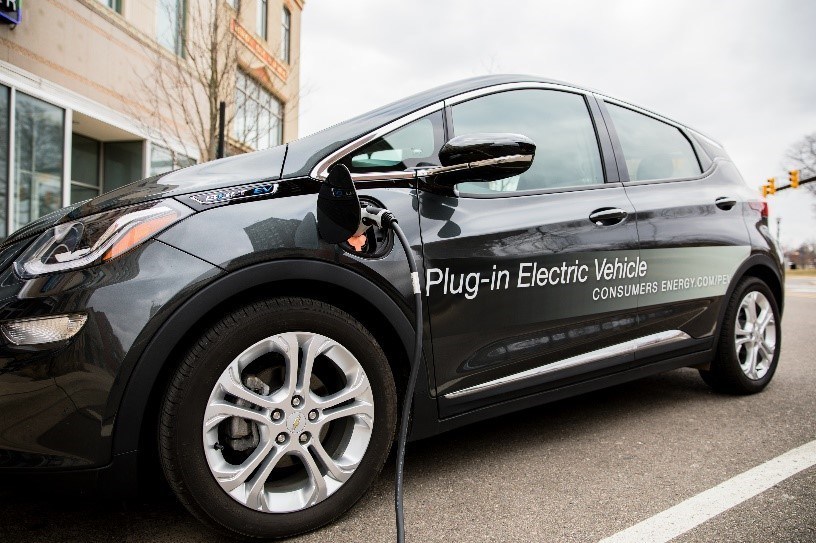
Michigan-based Consumers Energy is accelerating the electric vehicle (EV) transformation with a new program to help businesses statewide transition to carbon-free EVs. The utility’s PowerMIFleet program will focus on Michigan businesses, offering expertise and $3 million in rebates for charging locations throughout the state.
“Michigan was the birthplace of the American auto industry. Now, we are the center of the industry’s clean energy revolution,” said Lauren Youngdahl Snyder, Consumers Energy’s vice president for customer experience. “With PowerMIFleet, we at Consumers Energy are taking our success with EVs to the next level, making it easier for other businesses to join us on this Clean Energy journey.”
Through PowerMIFleet, Consumers Energy will provide expertise and consultation services to Michigan businesses, governments and school systems that are looking to electrify their vehicle fleets and charge overnight through cost-saving use rates. Consumers Energy is launching PowerMIFleet to build on its existing EV program, PowerMIDrive, which makes EV cost savings simple by providing time of use rates for EV drivers, and more than 800 rebates for home, business and public charging stations in the last two years.
“Consumers Energy will connect Michigan businesses, local governments and school bus fleets with the planning resources, expert guidance and financial incentives to easily and cost-effectively transition to electric vehicles,” Youngdahl Snyder said.
Through all of Consumers Energy’s vehicle programs, Michigan’s largest energy provider plans to help power 200 fast charging locations, along with more than 2,000 chargers at homes and businesses, over the next three years in Michigan.
Those vehicles will be powered by an electric grid that is moving toward being carbon neutral. Consumers Energy’s Clean Energy Plan calls for eliminating coal, eliminating energy waste and adding more renewable energy sources.
Consumers Energy, Michigan’s largest energy provider, is the principal subsidiary of CMS Energy, providing natural gas and/or electricity to 6.8 million of the state’s 10 million residents in all 68 Lower Peninsula counties.





